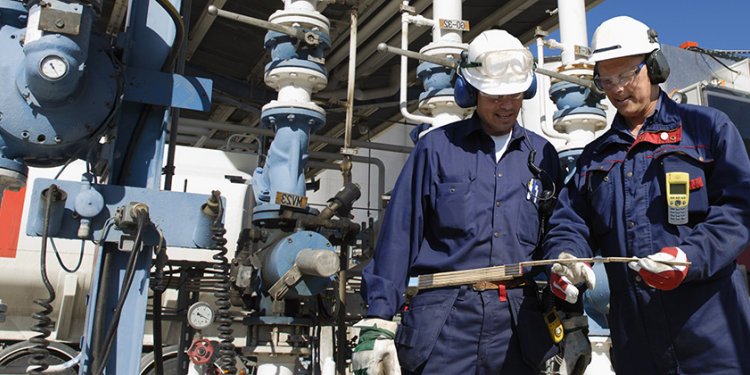In an organization, training and development activities are aimed at improving the skills and
knowledge of its individuals. An organization’s training curriculum and strategy can greatly impact
its’s ability to meet the industry regulations and standards. This is more pronounced in the oil and gas
industry, as indicated by a study done by Raytheon Professional services
(http://rpsblog.raytr.com/understanding-the-need-for-additional-training-in-the-oil-gas-industry/)
(RPS), a global provider of learning solutions, on 304 oil and gas professionals, which revealed that
50 percent of them believed that training is crucial and has helped them achieve their organization’s
long term goals.
Here are 5 main points that highlights the importance of training in the oil and gas industry:
1. Improved performance
2. Employee engagement
3. Career enhancement and security
4. Improved wages
5. Nurture young talent
Improved performance
Training helps individuals (http://apexjournal.org/jbamsr/archive/2015/Nov/fulltext/Anyim.pdf) expand
their knowledge and learn more advanced technological skills and adapt to the rapidly evolving
competitive environment. It also helps in networking and drawing from other’s experience. Training is
one major element organizations consider when looking to offer promotions.
Employee engagement
Employees who are engaged naturally bring more value (https://europetro.ru/media/2018/trainingbenefits-for-oil-and-gas-company) to the organization. When an organization dedicates time and
resources for training programmes, it means they value their employees and the sense of being
valued increases employee engagement exponentially.
Career enhancement and security
Employees should continue to learn and develop new professional skills
(https://www.hartenergy.com/opinions/power-training-importance-competency-oil-gas-industry121395) as this will open-up opportunities for advancement in their career. The oil and gas industry,
which is highly price sensitive, is dependent on the health of the economy. When an employee is
skilled and familiar with the best practices ensures that he’s valuable to the employer and doesn’t
need to worry about job security.
Improved wages
An employee who is more skilled will inevitably earn more income. A survey done by Energy voice
(https://www.energyvoice.com/oilandgas/220643/oil-and-gas-employers-paying-lip-service-totraining-survey-shows/) showed that 42 percent of oil and gas professionals had got a pay raise post
acquiring new skills from training programmes.
Nurture young talent (https://europetro.ru/media/2018/training-benefits-for-oil-and-gas-company)
Talent drain is an issue faced by many industries and oil & gas industry is no exception. When older
and more experienced employees retire from the company, it leads to a huge talent gap in the
organization. So, in order to avoid facing such scenarios, organizations should train young
employees in order to prepare them for more difficult responsibilities in the future.
The challenge of connecting employers and educators to collaboratively plan for training future
workers is an enduring one, particularly for jobs that are rapidly changing because of technological
advancements. Therefore, organizations need to be on their toes and provide their employees with
the best training available and stay ahead in the industry.
Case Study: Jobs and Skills in Demand – What Employers Need





